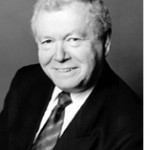By Rabbi Dow Marmur

JERUSALEM — The recent Israel cabinet decision to provide a site next to the existing Western Wall that would allow non-Orthodox Jews to hold egalitarian services outside the jurisdiction of the Orthodox rabbinate is unquestionably a political victory for the Reform and Conservative movements in Israel and respectful recognition of their counterparts in the Diaspora. It’s the triumph of prayer politics.
No doubt that, in addition to the expected abusive comments from Orthodox quarters, attempts will be made to sabotage the project. The Religious Affairs ministry (in the hands of an Orthodox politician) has already indicated that it won’t provide the money needed to complete the works and another government source will have to be found to pay for it. (A similar situation exists in paying the salaries of the few non-Orthodox rabbis who’re currently supported by the state).
There’s also dissent within the Women of the Wall who started it all more than two decades ago. Some of them have now formed themselves into a breakaway group (Original Women of the Wall) because they want to continue to pray in the existing women’s section yet have the right to read from the Torah, wear tallit and tefillin and let their voices be heard in prayer, all of which Orthodox men find offensive.
But neither the Orthodox invective nor the women’s dissent should detract from the achievement of the Progressives and the fact that in the future even more Bar/Bat Mitzvah ceremonies and perhaps other events will be held in the new section. Whether non-Orthodox Jews will come just to pray there is less certain.
I won’t, not because I begrudge my fellow Progressives their victory but because I’m on record (e.g., in a column in the Canadian Jewish News) that I follow the opinion of the late Abraham Joshua Heschel that Judaism celebrates holy events, not holy places. I’ve always understood the Reform exclusion of all references to the ancient Temple from its liturgy as reflecting this teaching.
Though I live within walking distance of the Western Wall I only go there when showing the Old City to visiting friends or attending a Bar/Bat Mitsvah ceremony at Robinson’s Arch, south of the Wall, which will now be extended to reflect the new situation. I’m always happy to celebrate but find it impossible to pray there.
I’m trying not to pray politically. For me and perhaps for others attending worship services at the Wall or its vicinity are political, not religious, act. However, I’m enough of a pluralist to be happy for those who are inspired by the site and what it stands for.
I still believe, however, that real progress of our movement should be measured according to non-political criteria. For example that there’re well-nigh four dozen Reform congregations in the country and that in the not-too-distant future the Israel Rabbinic program of the Hebrew Union College will have graduated a hundred Israeli rabbis are substantial achievements that may help shape the religious life of the country, despite Orthodox intransigence and secular indifference.
It seems that the leaders of Reform are more preoccupied with the intransigence than the indifference. They’re rightly indignant about the shenanigans by the official rabbinate but surprisingly reconciled with not making more impact on Israeli society as a whole. I hope that those in charge will now move from prayer politics to philosophy.
*
Rabbi Marmur is spiritual leader emeritus of Holy Blossom Temple. He may be contacted via dow.marmur@sdjewishworld.com . Comments intended for publication in the space below must be accompanied by the letter writer’s first and last name and by his/ her city and state of residence (city and country for those outside the U.S.)